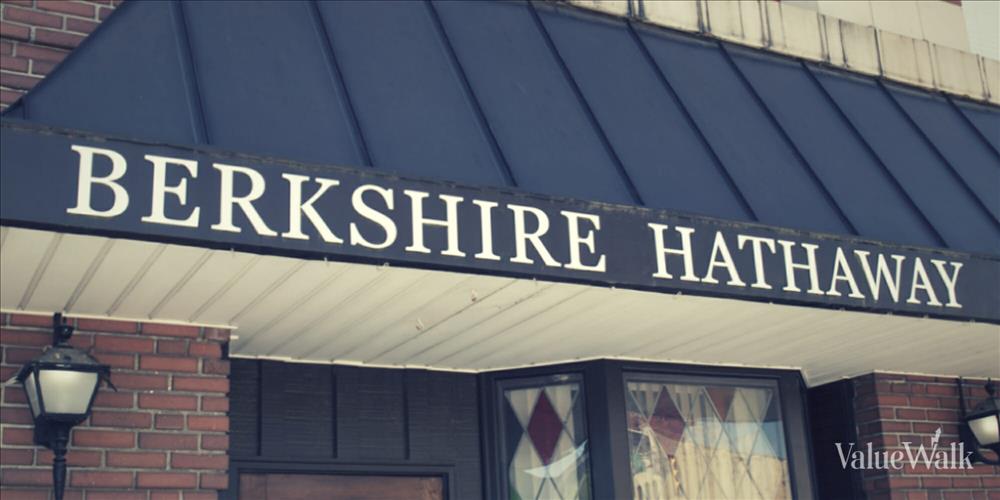
How Charlie Munger Fixed Warren Buffett's“Mistake”
However, this year's annual meeting, held Saturday in Omaha, was indeed bittersweet as it was the first without Buffett's long-time partner, Charlie Munger, who died on November 28 at the age of 99. Buffett offered a tribute to his friend and partner in his annual letter to shareholders , calling him the“architect of Berkshire Hathaway.”
The architect of the house that Buffett builtIf Berkshire Hathaway is the house that Buffett built, Munger was the architect who drew up the plans. Munger told Buffett in 1965 - before he joined the company - that Buffett had made a“dumb decision” in buying control of Berkshire Hathaway. However, since it was a done deal, Munger said he would tell him how to fix the mistake.
“Nevertheless, Charlie, in 1965, promptly advised me: 'Warren, forget about ever buying another company like Berkshire. But now that you control Berkshire, add to it wonderful businesses purchased at fair prices and give up buying fair businesses at wonderful prices. In other words, abandon everything you learned from your hero, Ben Graham. It works, but only when practiced at small scale.' With much back-sliding I subsequently followed his instructions,” Buffett wrote in the letter.
More than a decade later, Munger joined his old friend at Berkshire Hathaway, and the two had been running the company until Munger died last year.
“In reality, Charlie was the 'architect' of the present Berkshire, and I acted as the 'general contractor' to carry out the day-by-day construction of his vision. Charlie never sought to take credit for his role as creator but instead let me take the bows and receive the accolades. In a way his relationship with me was part older brother, part loving father. Even when he knew he was right, he gave me the reins, and when I blundered, he never - never - reminded me of my mistake,” Buffett wrote.
He added that Munger's legacy as architect should live on.
“In the physical world, great buildings are linked to their architect while those who had poured the concrete or installed the windows are soon forgotten. Berkshire has become a great company. Though I have long been in charge of the construction crew, Charlie should forever be credited with being the architect,” Buffett concluded.
The next generationAlso in the letter, Buffett discussed the next generation of leadership, vice chairs Greg Abel and Ajit Jain, and their ties to Omaha.
“Greg Abel, who runs all non-insurance operations for Berkshire - and in all respects is ready to be CEO of Berkshire tomorrow - was born and raised in Canada (he still plays hockey). In the 1990s, however, Greg lived for six years in Omaha just a few blocks away from me. During that period, I never met him. A decade or so earlier, Ajit Jain, who was born, raised and educated in India, lived with his family in Omaha only a mile or so from my home (where I've lived since 1958),” he wrote.
All three men sat on the stage on Saturday, answering questions from shareholders. One of the shareholders asked who will have final say over the stock portfolio. Buffett said it would be Abel.
“He understands businesses,” Buffett said , reported Yahoo.“The responsibilities should entirely be with Greg.”
Last year, the portfolio returned 15.8%, trailing the S&P 500ʻs return of 26.3%, but as Buffett said, Berkshire Hathaway was built and designed for the long run.
“I believe Berkshire can handle financial disasters of a magnitude beyond any heretofore experienced. This ability is one we will not relinquish. When economic upsets occur, as they will, Berkshire's goal will be to function as an asset to the country - just as it was in a very minor way in 2008-09 - and to help extinguish the financial fire rather than to be among the many companies that, inadvertently or otherwise, ignited the conflagration,” he wrote.
Since 1965, its portfolio has performed nearly twice as well as the S&P 500, with an average annual return of 19.8%, compared to 10.2% for the S&P 500.

Legal Disclaimer:
MENAFN provides the
information “as is” without warranty of any kind. We do not accept
any responsibility or liability for the accuracy, content, images,
videos, licenses, completeness, legality, or reliability of the information
contained in this article. If you have any complaints or copyright
issues related to this article, kindly contact the provider above.


















Comments
No comment